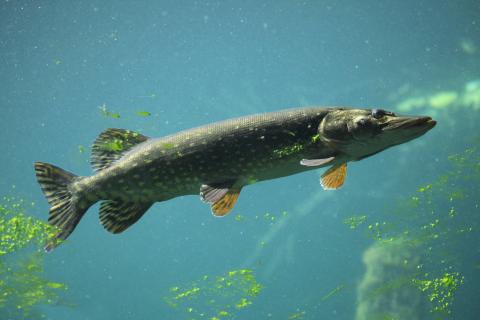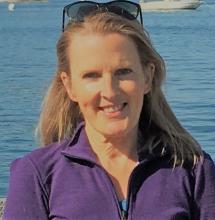The Current June 2021
In 2016, as a result of catastrophic flooding along Lake Champlain and the Richelieu River in spring 2011, the governments of Canada and the United States instructed the International Joint Commission (IJC) to “fully explore the causes, impacts, risks and solutions to flooding in the Lake Champlain-Richelieu River basin.” The IJC established a Study Board to oversee the Study and provide recommendations. The IJC also established a Public Advisory Group to assist the Study Board with engaging the public over the course of the Study. The Public Advisory Group publishes this bimonthly newsletter to help keep the public informed about the Lake Champlain Richelieu River (LCRR) flooding Study.
Letter from the Public Advisory Group Co-Chairs
It feels as if we have turned a corner with the LCRR Study. The technical working groups are busy producing white papers and final reports to share findings of their research related to upland flood storage, possible structural mitigation solutions or actions in the Richelieu River, floodplain management, and flood forecasting advances. Using this information, the Study Board is beginning to explore potential recommendations that might be shared with the IJC and the Canadian and United States governments next spring at the close of the study. In response, the Public Advisory Group is readying to serve as a sounding board for possible recommendations the board may make, to aid the Study Board in assessing how the public might respond, and to allow recommendations to be adaptively managed as the study approaches completion. At the same time, the study communications and outreach team – working in collaboration with the technical experts – is scheduling meetings with various stakeholders and preparing summary reports and videos that highlight key findings from technical working groups. We encourage you to explore the LCRR website (https://www.ijc.org/en/lcrr) to view recent technical webinars and to learn about study findings through recently released reports, videos and fact sheets.
Madeleine Papineau, Canadian Co-Chair Kristine Stepenuck, US Co-Chair
Study News
Increasing Public Awareness of Flood Risk
To ensure residents and other key constituents recognize the potential for flooding in the Lake Champlain – Richelieu River watershed, the Study Board commissioned a white paper on how best to communicate flood risks by Dr. Daniel Henstra and Bronwyn McIllroy-Young. This is one of four white papers focusing on floodplain management that the study will produce, and it provides a variety of actionable items and best practices. Highlights of the white paper were discussed at the April meeting of the Public Advisory Group (PAG). These include recommendations that flood risk communications be targeted to specific audiences as opposed to the general public. Timing of communications is important, and a variety of messaging mechanisms should be used to reach the most people. New technologies such as mobile phone applications offer innovative ways of reaching communities. It is also clear that effective messaging to target audiences must come from trusted information sources. Finally, flood risk communications should be regularly evaluated so that improvements can be made in the future. PAG members agreed with the need for enhanced flood risk communication in the LCRR basin and that several of the suggestions could prove useful in changing perceptions and increasing the understanding and the awareness of this threat.
Expert Advisor Highlight

Continuing our series highlighting subject matter experts who are working closely with the Study Board, we are featuring Marie-Christine Therrien, the Canadian co-lead for the Social, Political, Economic (SPE) Analysis Group.
In this role, Marie-Christine leads a team focused on assessing the likely acceptability of potential flood mitigation measures that may be proposed by the Study Board by different stakeholders including the general public, advocacy organizations, elected officials and government agencies.
Outside of the LCRR Flood Study, Marie-Christine is a management professor at the École nationale d’administration publique and Director of Cité-ID LivingLab Urban Resilience Governance, where she explores issues of network coordination, collaborative governance and crisis management. Based in Montreal, she has two decades of experience in this field, and also co-leads the Risk Management and Communication, Decision Support Tools and Resilience axes of Quebec’s inter sectorial flood network (RIISQ).
Performance Indicator
The LCRR Study considers a number of Performance Indicators (PIs) in assessing the potential environmental, economic and social benefits and impacts of possible mitigation measures.
One such PI is northern pike, and specifically the available area of suitable spawning habitat and the viability of northern pike eggs and larvae in areas where water levels are lowered. If a mitigation measure to reduce flooding also reduces water levels in spawning areas too much, there is an increased risk of impacts to the watershed’s population of northern pike. The fish are found in Lake Champlain and the Richelieu River and their tributaries, and reproduce in the floodplain. Larvae must reach 20 mm (0.78 inches) before they can migrate back to the main waterbody from the floodplain shallows. To ensure survival of the next generation of northern pike, their spawning areas must remain flooded for 30-40 days.

Northern pike are a prized sportfish for anglers, and are a top predator in their environment. Protecting the integrity of their habitat also protects the habitat of many other aquatic species.
People

The study welcomed Serge Lepage as the Canadian interim study manager this spring. Serge will serve as a facilitator between the Study and Canadian government, educational and other institutions to ensure the work of the Study progresses in a timely and efficient manner. He is temporarily filling in for Canadian Study Manager Serge Villeneuve. He will work closely with Mae Kate Campbell, the American study manager. Serge Lepage spent 17 years working for Environment Canada, and is an accomplished author of several books, having earned the “Prix Hubert-Reeves, catégorie Jeunesse” (youth category) award for his book, Découvrir les océans (Discover the oceans) in 2015.
While working for Environment Canada, Serge was honored for his “exceptional efforts” on the Integrated Dredging and Sediment Management component of the St. Lawrence Plan. He lives in Pointe-Calumet, Quebec, which experienced flooding in 2017 and 2019 due to high waters in lake des Deux-Montagnes.
The PAG (Public Advisory Group)
In addition to technical experts, the study works closely with community members who volunteer their time on the Public Advisory Group, or PAG. The 12 members of the PAG include individuals from Canada and the United States throughout the watershed study area. We introduce you to two members in this issue of The Current.


Lori Fisher is the executive director of the Lake Champlain Committee, a bi-state non-profit organization dedicated to a healthy, accessible Lake Champlain that has closely monitored flooding and proposed lake level regulation initiatives since the 1970s. Lori has more than 30 years of experience working on water quality issues and water policy, and has initiated and implemented outreach programs throughout the Lake Champlain watershed.
Jérémie Letellier is a grain farmer in the Richelieu River basin, and president of the regional farmer’s association (Fédération de l’UPA de la Montérégie), representing farmers across the basin in Quebec. Jérémie noted that farmers very clearly remember the devastating flood of spring 2011, and want to be involved in discussions about flood mitigation practices going forward.
On the Web
The Study was pleased to release its report on Potential Structural Solutions to Mitigate Flooding in the Lake Champlain-Richelieu River Basin recently. You can access the full report here and a summary fact sheet of the report here.
Stay updated on the Study Board’s work by signing up to receive electronic updates via our email distribution list. Click on our home page (https://www.ijc.org/en/lcrr) and scroll to the bottom to join.